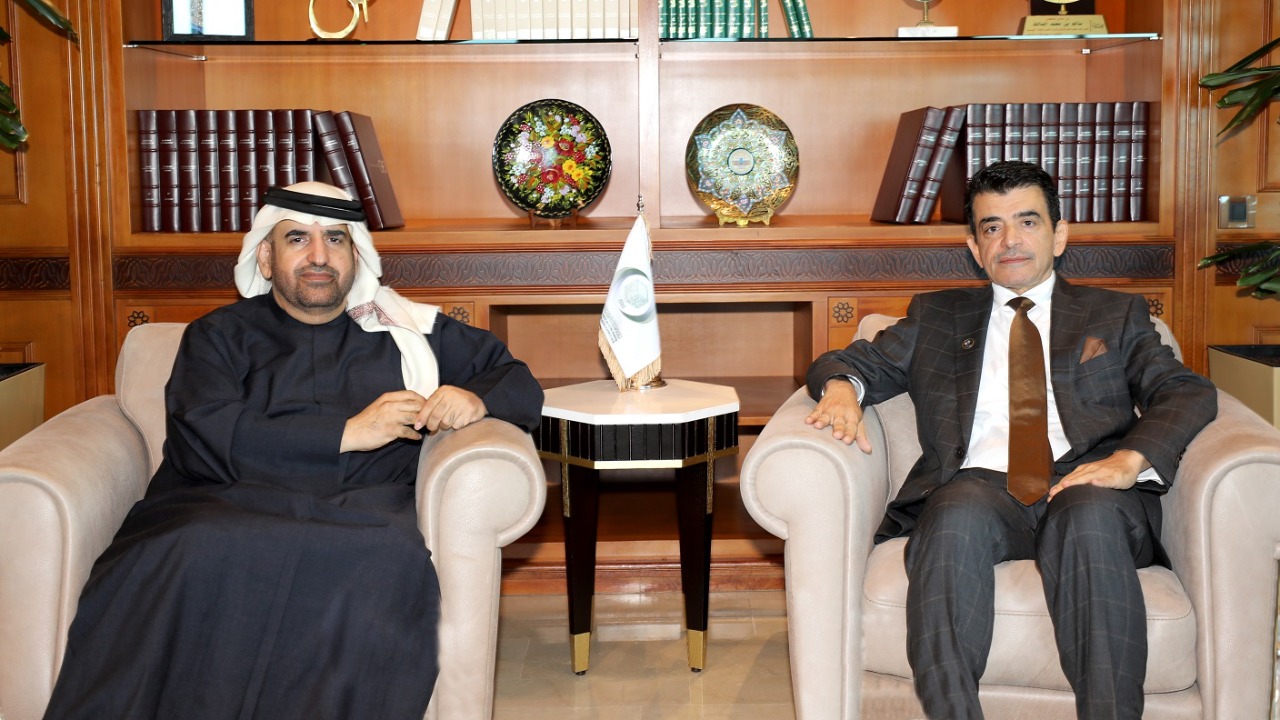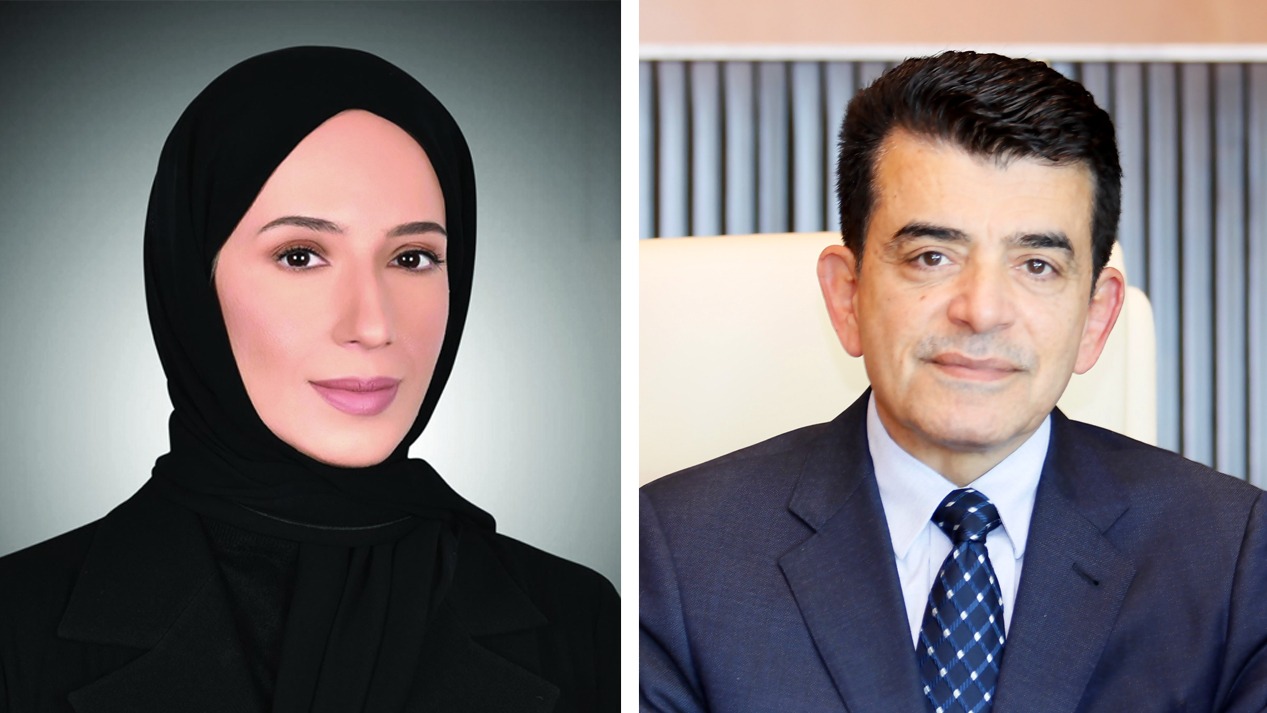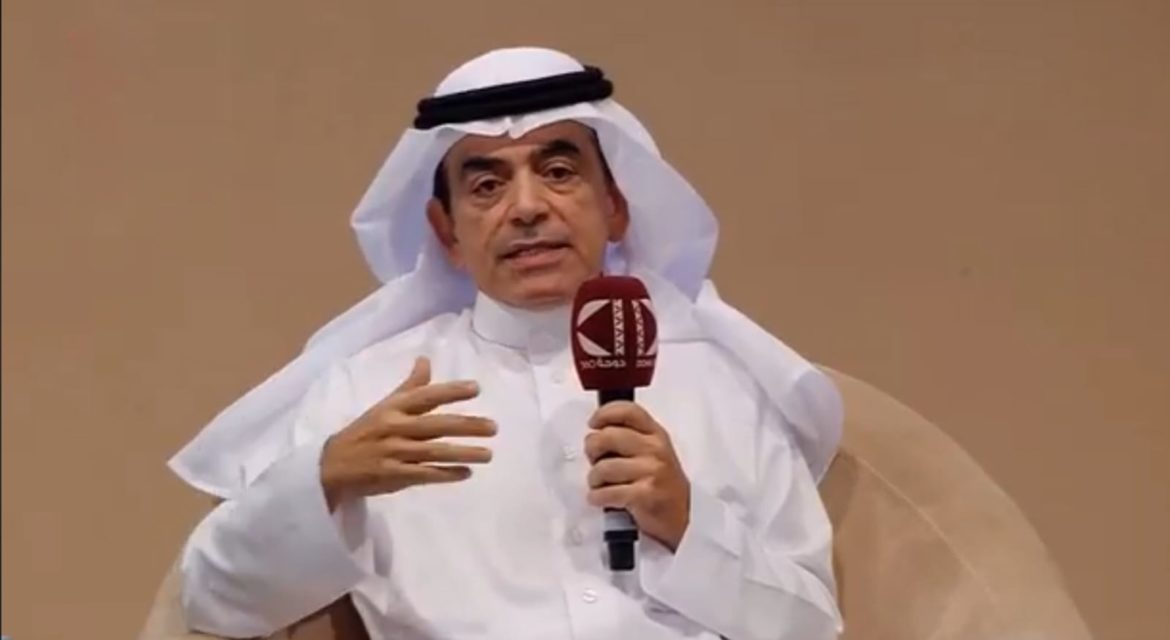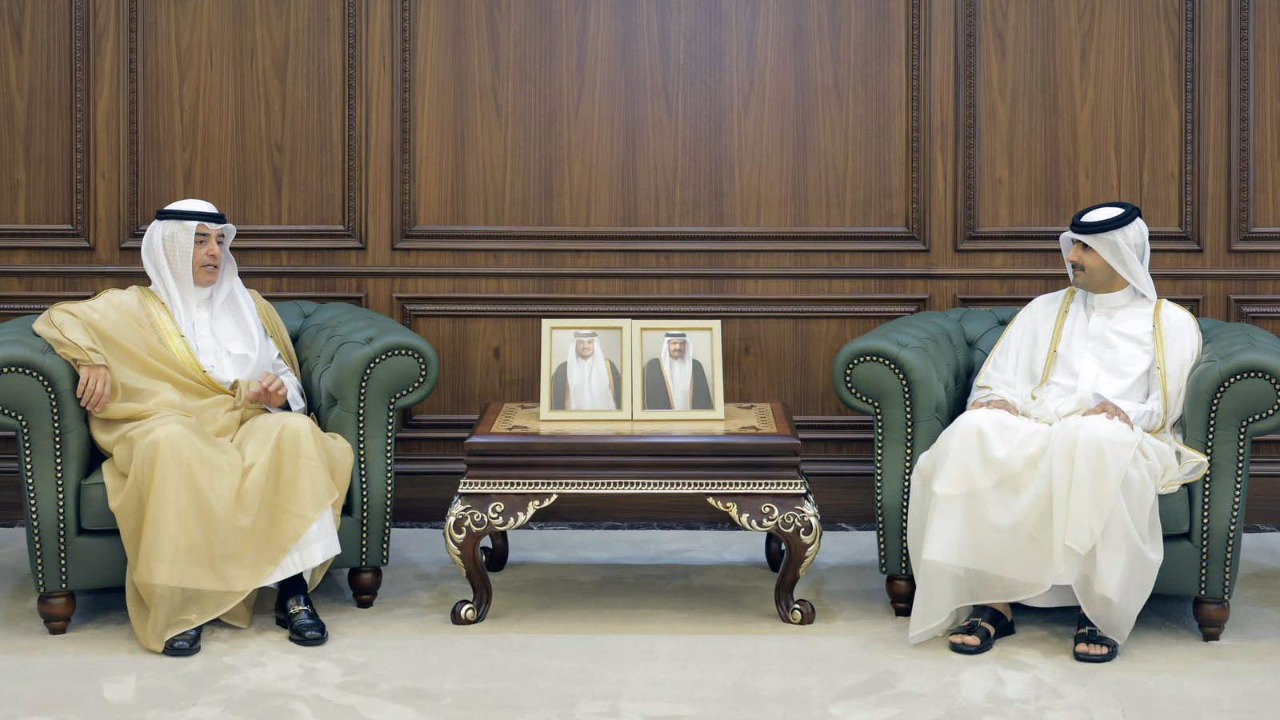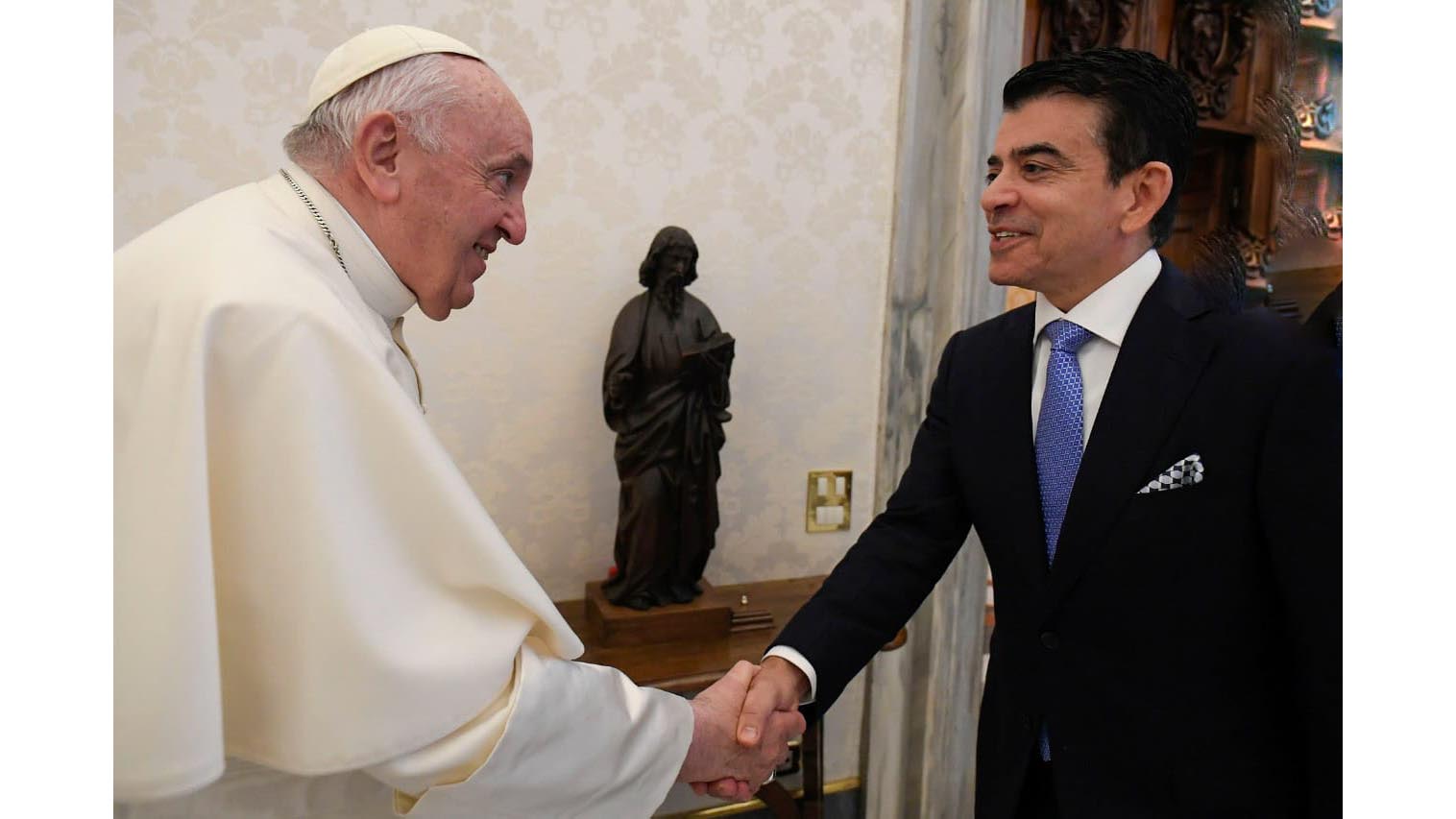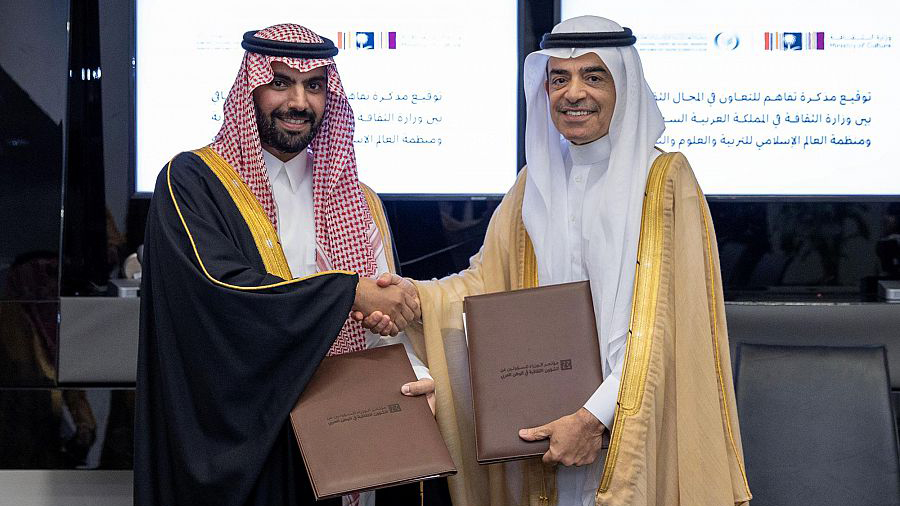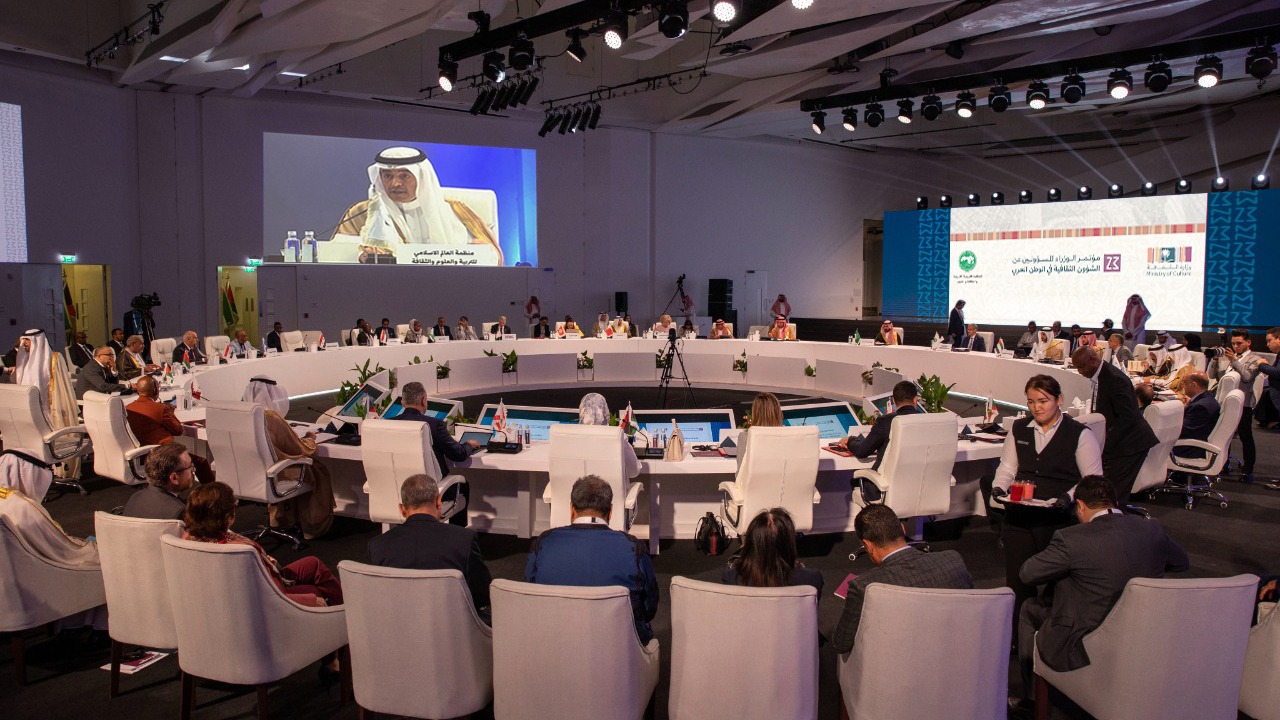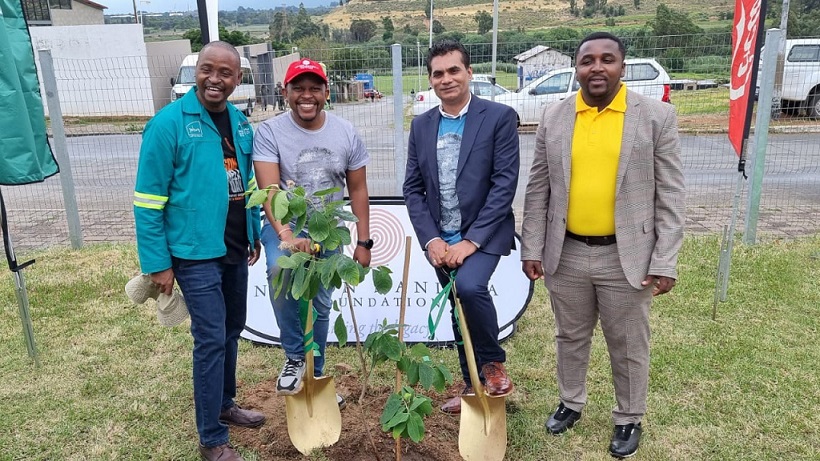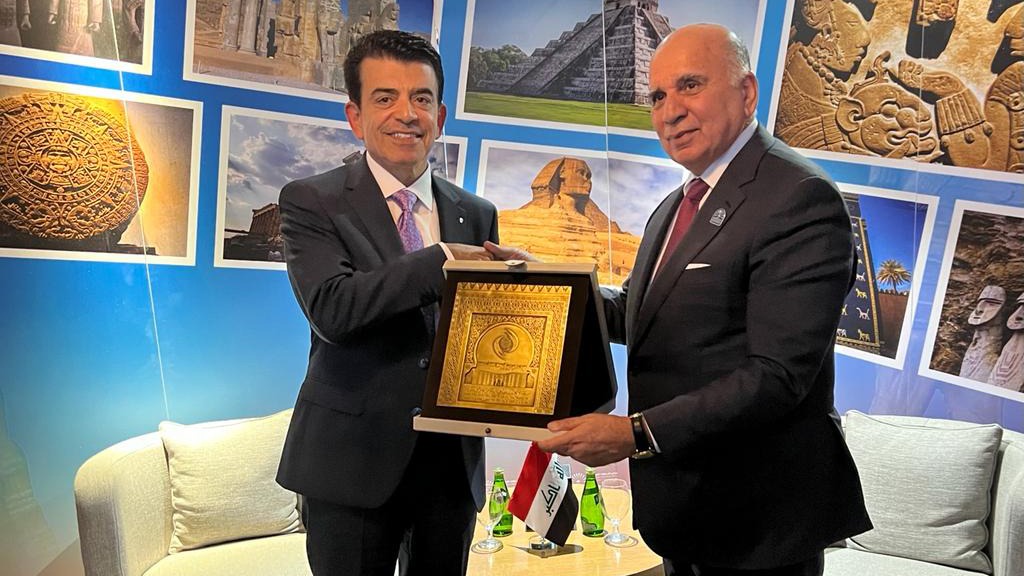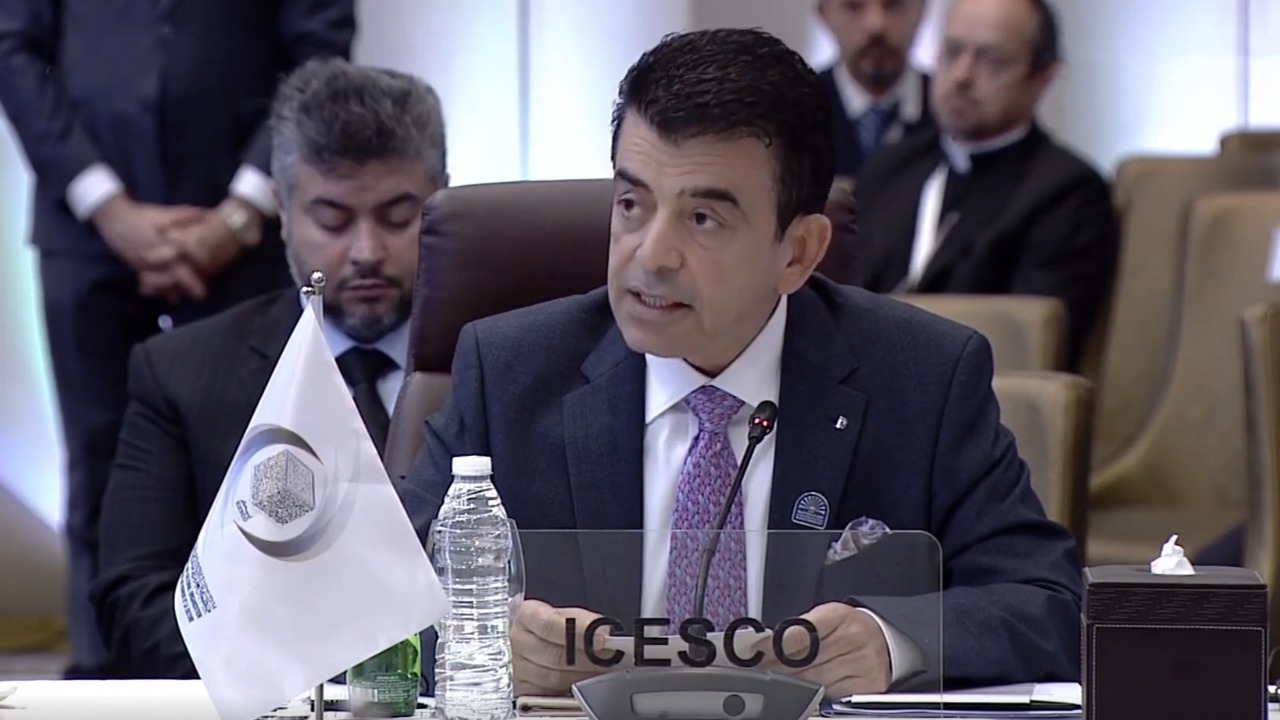Dr. Salim M. AlMalik, Director-General of the Islamic World Educational, Scientific and Cultural Organization (ICESCO), received Dr. Jamal bin Huwairib, CEO of Mohamed Bin Rashid Al Maktoum Knowledge Foundation (MBRF), and together they explored prospects of cooperation in areas of common interest.
During the meeting held today, December 20, 2022, at ICESCO Headquarters in Rabat, in the presence of several ICESCO’s heads of sectors and departments and Dr. Huwairib’s accompanying delegation, the two parties reaffirmed their keenness to promote cooperation, which had already been set into motion even before signing the cooperation agreement.

They also discussed cooperation in some fields notably, the Foresight Report: Future of Knowledge, annually issued by the Foundation and the UN Development Programme (UNDP), which features recommendations for decision-makers to support countries in building cooperation and innovation capacities.
The meeting also focused on the importance of the participation of all ICESCO Member States in this report, as the number currently stands at only 37 countries, given the significance of their participation in such indexes to assess and diagnose the challenges facing them as a first step towards overcoming them. The two parties also stressed the need for accurate and updated information supported by figures and statistics.

The two parties also discussed cooperation proposals in the field of Arabic to promote its presence on the international scene, particularly in the Islamic world, through finding commonalities between countries’ local languages and Arabic. The meeting also suggested the design of a joint action program that relies on modern communication technology to target young people; and the expansion of the Foundation’s program to train authors to include all the countries of the Islamic world.

At the close of the meeting, the two parties agreed to hold expert meetings to devise executive plans between ICESCO and the Foundation.
Following the meeting, Dr. AlMalik took Dr. Bin Huwairib and his delegation on a tour of the Museum and Exhibition of the Prophet’s Seerah and Islamic Civilization, currently hosted at ICESCO Headquarters. The Foundation delegation received a detailed presentation of the various sections and pavilions.


